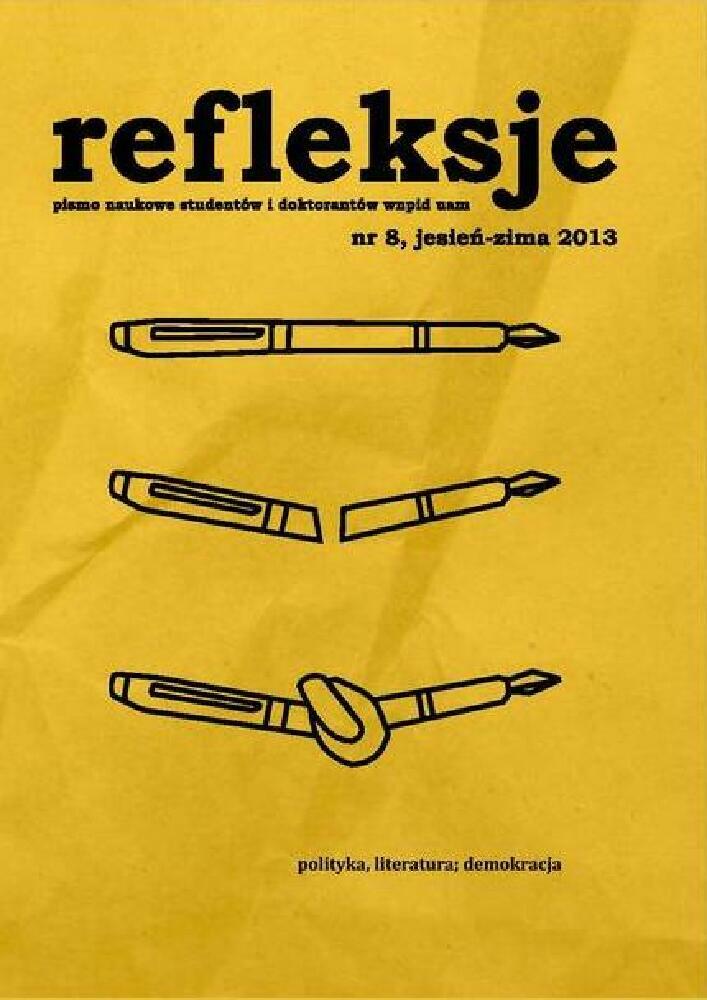Abstrakt
In this article author presents how Albert Camus opposed the totalitarian harmony of Mediterranean and Nordic disharmony. A. Camus gives to the myth of Mediterranean much political and ideological overtones and shows how far away it is from the idealistic and revolutionary ideology of northern Europe. The writer argues that the struggle between South and North is permanent, even though Europe for centuries tried to forget the ideals of the South, destroying itself by doing so and moving towards of self-degradation. The purpose of this article is to demonstrate that A. Camus does not ignore modern Europe, because his intention is only making clear to the reader that the modern world can no longer dispense without the idea of the Mediterranean world.
Bibliografia
Bieńkowski Z. (1996), Modelunki. Szkice literackie, Warszawa.
Camus A. (1958), Eseje, Warszawa.
Camus A. (1981), Zaślubiny, Lato, Kraków.
Camus A. (1994), Notatniki 1935–1959, Warszawa.
Camus A. (1998), Człowiek zbuntowany, Warszawa.
Chiaromonte N. (1996), Granice duszy, Warszawa.
Discours d’Albert Camus à l’Académie Nobel, (1957),
http://www.larevuedesres-sources.org/spip.php?article1489.
Garaudy R. (1967), Realizm bez granic, Warszawa.
Gard R. M. (1958), „Przegląd Humanistyczny”, nr 1, Warszawa.
Heraklit z Efezu (2005), Zdania, Gdańsk.
Kołakowski L. (2012), Czy diabeł może być zbawiony, Kraków.
Kowalska A. (1968), Dżuma Alberta Camusa, Warszawa.
Merton T. (1996), 7 esejów o A. Camus, Bydgoszcz.
Mordarski R. (1999), Albert Camus. Między absurdem a solidarnością, Bydgoszcz.
Patyk R., Czuła obojętność świata. O kategorii obcości u Alberta Camusa, http://www.badanialiterackie.pl/obcy/077-087_Patyk.pdf.
Popper K. R. (1997), W poszukiwaniu lepszego świata, Warszawa.
Wasyluk P., Antropologizacja dziejów – miejsce człowieka w dziejach (między fatalizmem a woluntaryzmem historycznym), http://www.kulturaihistoria.umcs.lu¬blin.pl/archives/988.
